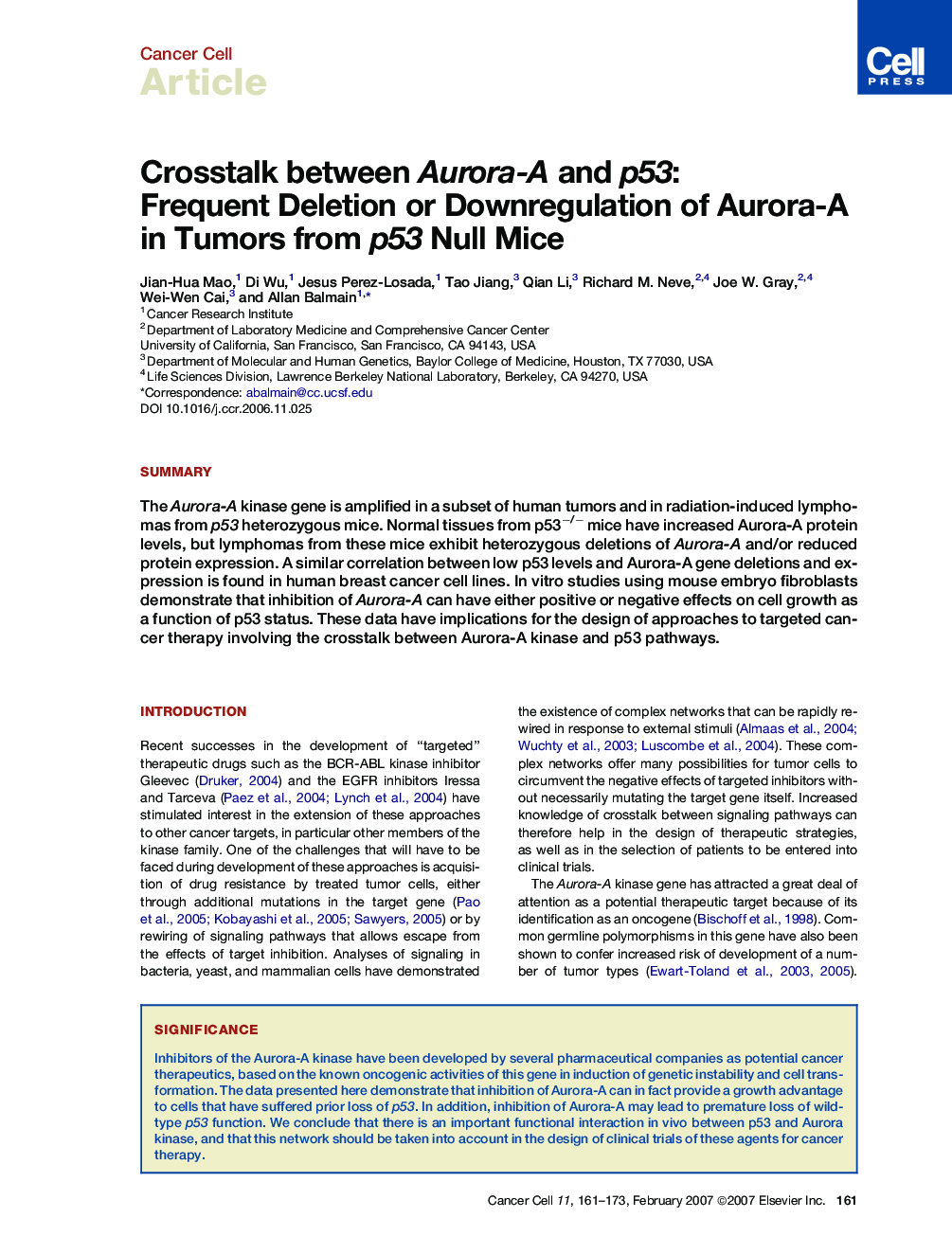| Article ID | Journal | Published Year | Pages | File Type |
|---|---|---|---|---|
| 2108437 | Cancer Cell | 2007 | 13 Pages |
SummaryThe Aurora-A kinase gene is amplified in a subset of human tumors and in radiation-induced lymphomas from p53 heterozygous mice. Normal tissues from p53−/− mice have increased Aurora-A protein levels, but lymphomas from these mice exhibit heterozygous deletions of Aurora-A and/or reduced protein expression. A similar correlation between low p53 levels and Aurora-A gene deletions and expression is found in human breast cancer cell lines. In vitro studies using mouse embryo fibroblasts demonstrate that inhibition of Aurora-A can have either positive or negative effects on cell growth as a function of p53 status. These data have implications for the design of approaches to targeted cancer therapy involving the crosstalk between Aurora-A kinase and p53 pathways.
